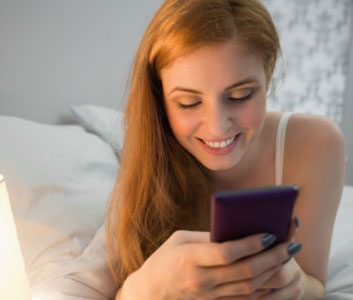
Tech in the bedroom
You take your smartphone and tablet everywhere, so it’s not unusual for your gadgets to hit the sack with you, but these accessories can interfere with snoozing. “Using these devices at bedtime has a significant impact on sleep quality. For people who struggle with sleep, technology should be turned off two to four hours before bedtime,” says Samuels. The bright light emitted from smartphone and tablet screens can interfere with your internal body clock’s sleep mechanism. So, when you’re busy searching the web, your brain can’t relax and allow sleep to take hold.
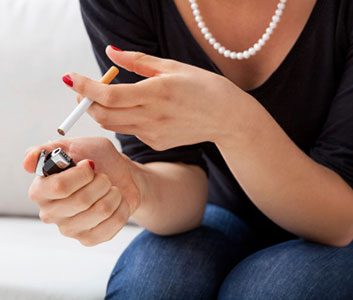
Smoking
Despite what some smokers believe, a cigarette before bed isn’t a calming ritual. According to a 2008 study from the American College of Chest Physicians, cigarette smokers are four times as likely as nonsmokers to feel tired after a night’s sleep. Scientists also discovered that smokers didn’t sleep as deeply as nonsmokers, and the blame points to nicotine – a stimulant that can cause withdrawal during sleep.
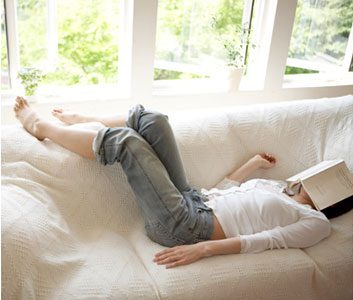
Taking daytime naps
“Generally a 20 to 30 minute post-lunch nap is an excellent thing for people to do,” says Samuels. “But if you suffer from insomnia, a nap reduces your sleep drive for nighttime and can worsen the insomnia,”
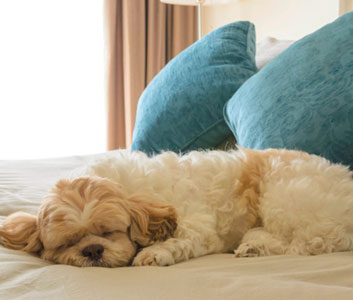
Pets on the bed
Bedtime won’t be a calm experience with Fido or Kitty hogging the covers. “Co-sleeping with animals is a behaviour that people do for psychological and emotional reasons, and it often interferes with getting good quality sleep,” says Samuels. Move pets to their own beds and let everyone in the family sleep peacefully.
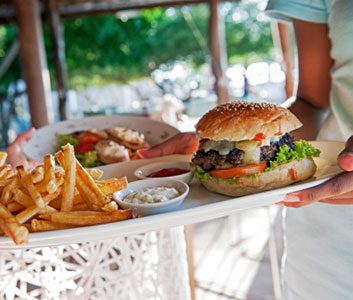
Eating heavy evening meals
Is dinner your biggest meal of the day? Enjoying large food portions in the evening can put extra stress on your digestive system, creating abdominal discomfort, acid reflux and the potential for sleep disruptions. “Dinner should be the smallest meal,” says Samuels. “And make sure eating is done four hours before bedtime. A little snack before bed is fine, but not large meals.”
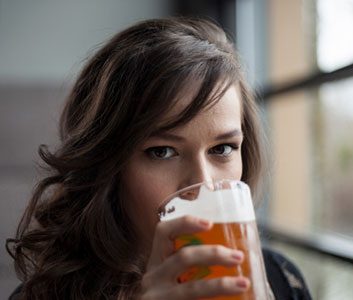
Drinking alcohol
A study published in the April 2013 issue of Alcoholism: Clinical and Experimental Research found that drinking excessive amounts of alcohol in the evening creates unsettled sleep during the later stages of the night. “One or two drinks at supper four hours before bed is reasonable, but when you start having four drinks in the evening, or drinking in order to fall asleep, it’s terrible,” says Samuels. While the study found that alcohol shortens the time it takes to nod off, it also creates a disrupted, less satisfying sleep.
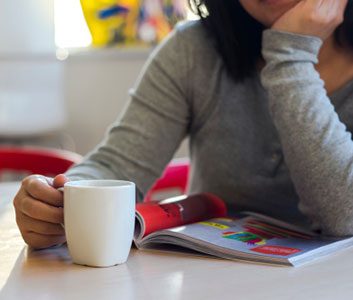
Consuming too much caffeine
Do you know why caffeine keeps you up at night? “Caffeine suppresses the body’s natural desire for sleep,” says Samuels. “One to two cups of coffee in the morning is fine, but when you drink four to six cups through the day, it’s going to affect sleep.” Caffeine’s effects can linger for up to eight hours, so enjoying coffees, colas, energy and sports drinks containing caffeine past the lunch hour can upset your sleep hours later.
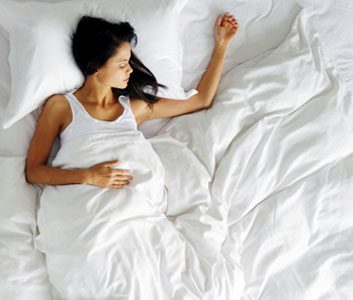
An inconsistent sleep routine
Going to bed, and waking up, at different times every day can play havoc with your shut-eye. “A routine with a regular bedtime and wake time is the number one thing that makes sleep better,” says Samuels. Try to hit the sheets within one or two hours of the same time every night and aim for the same window when getting up.
When you have the urge to sleep in on weekends, Samuels suggests putting a limit on how long you let yourself sleep. “Catching up on sleep is important, but there’s a window. It’s reasonable to sleep in for an hour or two, but sleeping past 10 or 11 a.m. starts to screw up your sleep for the next week,” he says.
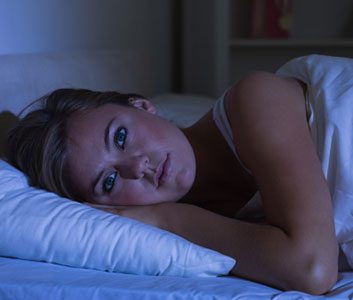
Still not sleeping?
If you’ve changed your habits but are still experiencing sleeping difficulties, seek help from your physician. Try to ignore the urge to purchase over-the-counter sleeping medications from a pharmacy since self-medicating is not the right choice for everyone. “We discourage the use of over-the-counter sleeping aids,” says Samuels. “The problem needs to be addressed behaviourally, and should be evaluated by a health care professional.”
Related:
• 6 soothing yoga poses to help you sleep
• 5 reasons to get more sleep
• Natural home remedies: Insomnia
